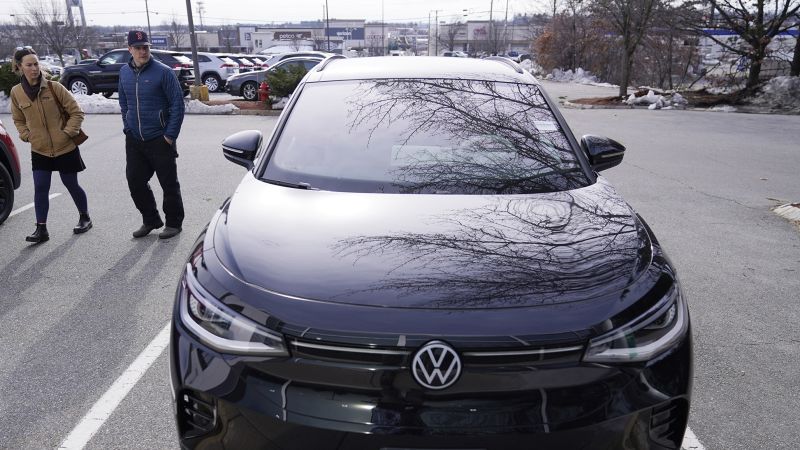Thanks to growing competition in the market, and some reticence from consumers, automakers and car dealers are offering huge discounts on electric vehicles, particularly luxury models.
The ranks of eager early adopters, those who feel they must have the latest technology in their vehicles, by now already own EVs, said Joseph Yoon, consumer insights analyst at Edmunds. Automakers find themselves having to appeal to more mainstream consumers with other priorities.
Hybrid models — with a known and trusted technology that doesn’t require charging stations — are garnering much more interest from consumers, said Pat Ryan, chief executive of the car shopping app company CoPilot. In contrast to EVs, hybrids are selling for more than their sticker prices and are moving quickly off dealer lots, according to data from Edmunds.
“The adoption curve for hybrids is much further along,” Ryan said.
Tesla had the market for EVs largely to itself for a long time. Now, adding price pressure for EVs, Tesla is aggressively cutting prices as it tries to maintain its outsized market share with an aging model lineup. The base sticker price for a Tesla Model 3, for instance, has dropped 17% over the past year. Now, other automakers, particularly luxury brands, are selling EVs at big discounts, too.
In September 2022, the average electric vehicle purchased in the United States, excluding Teslas, went for about $1,500 over sticker price. (Remember, for most new vehicles, the manufacturer’s suggested retail price, or sticker price, is just a suggestion, with the final selling price usually higher or lower.) One year later, the average EV went for about $2,000 under sticker price, according to data from Edmunds. That’s a much bigger change — and a much deeper discount — than for the industry overall. The average new vehicle, overall, sold for only about $900 under its sticker price last month, according to Edmunds.
In sheer dollars, the average price paid for a non-Tesla electric vehicle actually went up slightly over the past year. Electric cars tend to be expensive in part because the EV market skews heavily toward luxury brands like Audi, BMW and Mercedes. Even amongst mainstream brands like Volkswagen and Hyundai, EVs tend to be among the more expensive models. But EV buyers are now getting much more vehicle for their money.
For instance, customers who bought the Audi E-Tron GT, with an average sticker price, including options, close to $119,000, got discounts of more than $7,200, according to Edmunds. It’s not just extremely high-dollar EVs, though. The Volvo XC40 Recharge, with an average sticker price around $61,000, is selling with discounts averaging about $7,750, according to Edmunds.
These discounts don’t include government tax incentives, Yoon said.
Due to various restrictions many EVs, when purchased, aren’t eligible for tax credits. But, thanks to a quirk in tax laws, most restrictions drop if a vehicle is leased instead of purchased, according to Alison Flores of the Tax Institute at H&R Block, including the cap on vehicle price. In a lease, the tax credit goes to the leasing company which, technically, “owns” the car. The leasing company can then pass it onto the consumer in the form of reduced lease payments. Edmunds’ pricing analysis doesn’t include those sort of incentives, said Yoon, so the tax credit is in addition to the discounts listed here.

In general, the deepest discounts are on vehicles with the biggest sticker prices. But consumers can still find some major discounts among non-luxury EVs. For instance, the average discount on a Volkswagen ID.4 is about $2,900, and discounts on the Nissan Ariya average about $2,200. Those vehicles still aren’t exactly cheap, with sticker prices around $50,000, but, with discounts and tax credits, they end up costing about the same, or even a little less, than the average new vehicle.
Since you can essentially add $7,500 in tax credits to many of these EV discounts, that also means that some already very cheap EVs selling at about sticker price, like the Chevrolet Bolt, are really selling at pretty deep discounts, too.
Read the full article here





